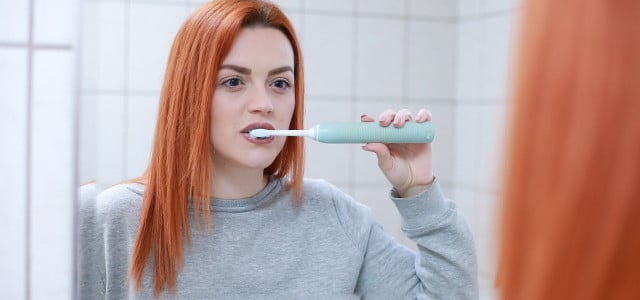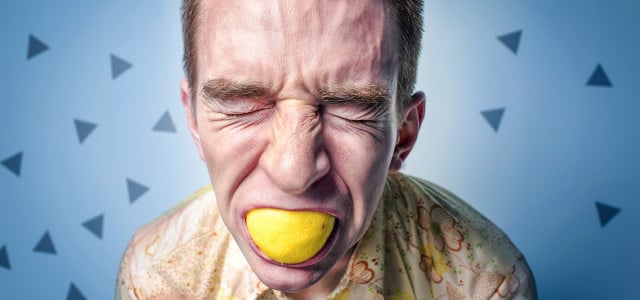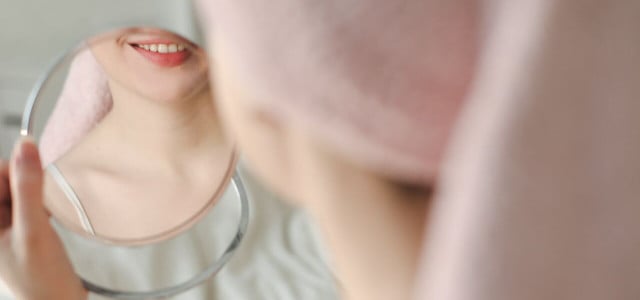It’s vital to maintain your oral health — but how long should you brush your teeth? Thankfully, the timing is quite straightforward.
Brushing your teeth is incredibly important for your oral health, and it may already likely be ingrained into your morning and nighttime routines. However, even if you brush your teeth regularly, you may not know exactly how long to do it for. While it may not seem important, timing is crucial for maintaining your oral health.
How Long Should You Brush Your Teeth For?
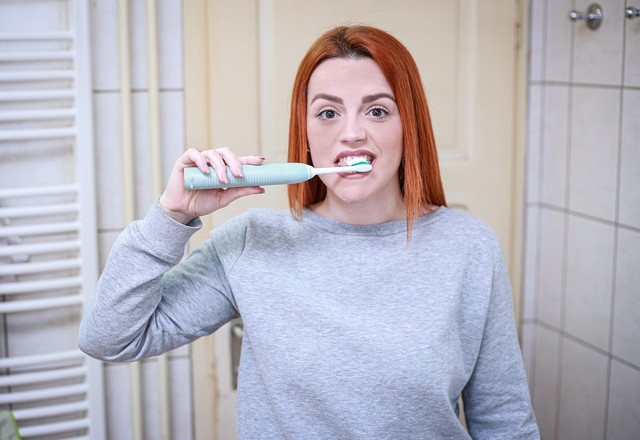
When it comes to timing, the golden rule is usually the two-minute mark. This is the optimal amount of time to help keep your teeth clean, including if you have braces or spacers. While the timing doesn’t change with age, it is imperative that you continue to take good care to maintain good habits as you get older. This is because your oral health tends to decline as you age, therefore brushing your teeth is essential.
But what if you don’t brush for long enough? A systematic review of 59 papers found that brushing for just one minute removes about 27 percent of plaque from your teeth — for two minutes, it’s 41 percent. If that sounds like not it’s not enough for you, keep reading to find out how to brush your teeth for maximum plaque removal.
The results of this study also mean: If you don’t abide by the two-minute rule, you could end up with some serious plaque build-up. In the long term, this can lead to cavities in your teeth alongside bad oral health. The longer you brush, the better. However, you should be careful to limit your teeth brushing sessions to twice a day, as it may negatively impact your teeth.
As with most things that concern your body and your health, the truth might be more nuanced. Josephine Hirschfeld, a dentistry specialist, asserts in an interview with the BBC: “In fact, the optimal brushing time is highly dependent on the individual situation. It’s not really defined, and it cannot be defined, because every person’s dental and oral situation is different. What matters is that all teeth are cleaned, all the surfaces of each tooth also including difficult to reach areas — and that can easily take a lot longer than two minutes.”
Can You Brush Your Teeth for Too Long?
Brushing your teeth too often can have negative effects, and twice a day is what the vast majority of dentists recommend. Some dental experts assert that two minutes at a time isn’t quite enough — and recommend four, instead — brushing for much longer than a few minutes could lead to several issues, however:
- Gum irritation — Overbrushing can cause irritation and damage to your gums. Vigorous brushing for extended periods can lead to gum recession, which exposes the sensitive root surfaces of your teeth.
- Enamel erosion — Brushing your teeth excessively and aggressively can wear down the enamel, the protective outer layer of your teeth. This could lead to tooth sensitivity, discoloration, and increased risk of tooth decay.
- Fluorosis in children — Brushing children’s teeth too often may result in using more toothpaste than necessary. This can lead to a condition called fluorosis, which causes white or brown spots on their teeth.
It’s important not to overstate those risks, however. Most people don’t brush their teeth for long enough to keep them healthy — according to one study, that’s the case for three out of four — so overbrushing is rarely a problem.
The Best Way to Brush Your Teeth
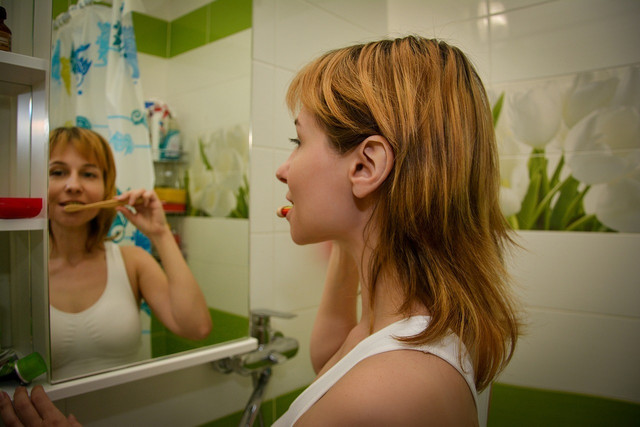


Alongside brushing your teeth for two minutes or more, you should also ensure that you utilize the best techniques. When it comes to brushing, there are actually some rules that you should follow:
- Floss your teeth.
- Apply toothpaste to your toothbrush and brush your teeth in a circular motion. Brush the inside and outside of your teeth.
- Spend 30 seconds on each section of your teeth, ensuring you don’t brush too hard.
- Brush at a 45-degree angle.
- After brushing your teeth, you should clean your tongue.
Health experts agree that electric toothbrushes tend to be better at removing plaque than manual ones. If you don’t have one yet, consider making the purchase the next time you have to replace your toothbrush anyway — which is likely sooner rather than later. Learn more: How Often Should You Replace Your Toothbrush?
You could even try making your own homemade toothpaste. It’s a low-waste alternative to store-bought toothpaste, but you should talk to your dentist before making a decision. However, when it comes to children, you should ensure that they are using the correct toothpaste, especially those under three years old.
Read more:
- Why Fluoride Is Important for Your Teeth
- How to Sanitize a Toothbrush in 1 Easy Step
- Breathe Easy: The Science Behind Why Nose Breathing Is Better for Your Health
Important Information regarding Health-related Topics.
** Links to retailers marked with ** or underlined orange are partially partner links: If you buy here, you actively support Utopia.org, because we will receive a small part of the sales proceeds. More info.Do you like this post?






